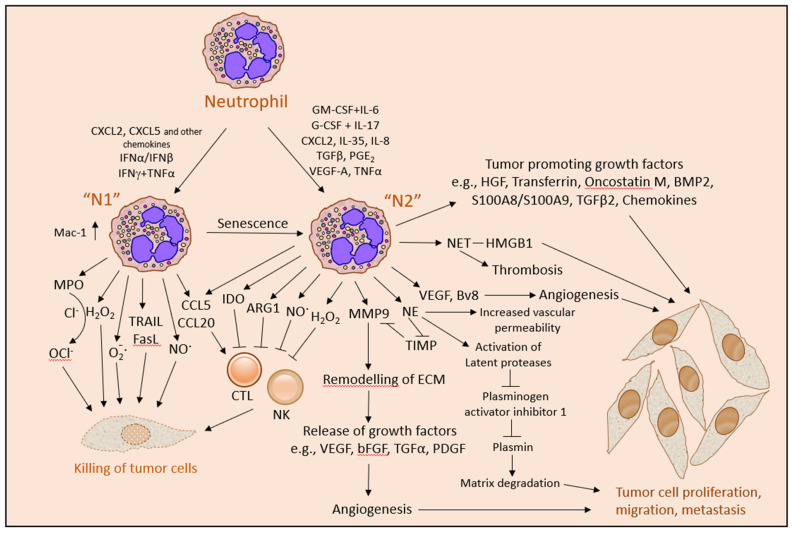Figure 3.
The intricate anti- and pro-tumor functions of neutrophils. The activities of neutrophils can be modulated by a wide range of factors produced by tumor cells, stromal cells, neutrophils and other immune cells. Chemokines and certain cytokine combinations in the presence of interferons can activate the neutrophils to an anti-tumor “N1” phenotype. These neutrophils are important for tumor cell rejection either by a direct tumor cell killing caused by a combination of the cytotoxic molecules H2O2, O2−·, OCl−, NO·, TRAIL and FasL, or indirectly by recruiting cytotoxic T lymphocytes (CTL) and NK cells that eliminate the tumor cells. Other cytokine/chemokine combinations can lead to an alternative activation of the neutrophils to acquire a pro-tumor “N2” phenotype that promotes tumor cell proliferation and migration by secreting tumor promoting growth factors and by remodeling the extracellular matrix (ECM). In addition, the “N2” neutrophils promote angiogenesis, which is important for tumor cell expansion, and repress CTL and NK anti-tumor functions. The “N2” population is heterogeneous, composed of immature LDNs, G-MDSCs and senescent neutrophils.

